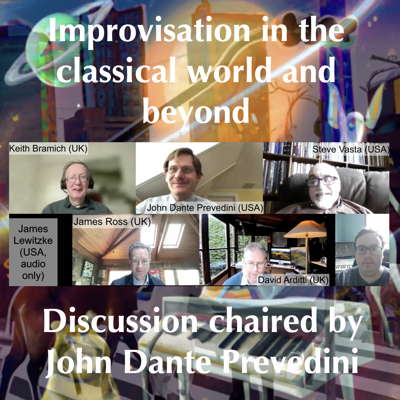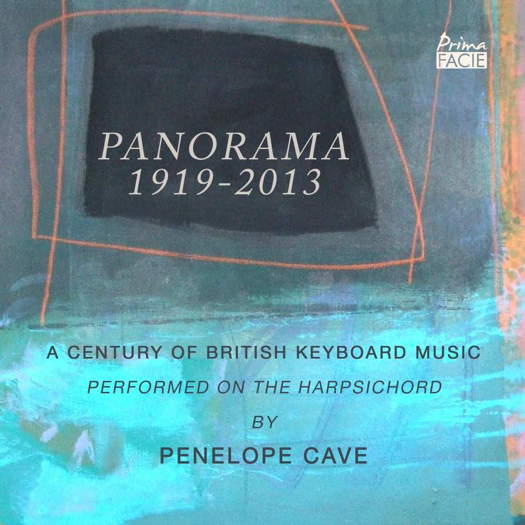- Johann Strauss the Elder
- Dobrzynski
- Canadian Opera Company
- Guilmant
- Antonio Vivaldi
- Gustav Klimt
- Jeffrey Irving
- Giulio Arnofi
 DISCUSSION: John Dante Prevedini leads a discussion about Improvisation in the classical world and beyond, including contributions from David Arditti, James Lewitzke, James Ross and Steve Vasta.
DISCUSSION: John Dante Prevedini leads a discussion about Improvisation in the classical world and beyond, including contributions from David Arditti, James Lewitzke, James Ross and Steve Vasta.
 SPONSORED: CD Spotlight. A Fantastic Collection. Penelope Cave Panorama CD. Little-known harpsichord gems, strongly recommended by Alice McVeigh.
SPONSORED: CD Spotlight. A Fantastic Collection. Penelope Cave Panorama CD. Little-known harpsichord gems, strongly recommended by Alice McVeigh.
All sponsored features >>
Elisabeth Lutyens
English composer Elisabeth Lutyens was born into an aristocratic family in London on 9 July 1906. She wanted to compose from the age of nine, and in 1922 she stayed with Nadia Boulanger pupil Marcelle de Manziarly in Paris for several months and studied at the École Normale de Musique. After travelling to India with her mother in 1923, she studied with John Foulds and then with Harold Darke at the Royal College of Music in London.
Lutyens was well-connected, musically and otherwise, but had an unhappy family life and suffered from depression and alcohol addiction. Following an unhappy and short-lived marriage to baritone Ian Glennie, she became the partner of influential conductor Edward Clark, who had studied with Schoenberg. Through Clark's connection with William Walton, Lutyens was commissioned by Scottish conductor and composer Muir Mathieson to write anything she wanted. The result was The Pit, and Clark conducted this and Lutyens' Three Symphonic Preludes at the International Society for Contemporary Music's 1946 festival in London.
When Lutyens' friend William Glock became director of music at the BBC, the organisation broadcast much of her music. She was intolerant of better-known contemporaries such as Arnold Bax, Gustav Holst, John Ireland and Ralph Vaughan Williams, famously dismissing them as 'the cowpat school' who produced 'folky-wolky melodies on the cor anglais'.
Lutyens wrote much film music, including for Hammer Horror films and for Amicus Productions, became the first female British composer to write the score for a feature film and was referred to as 'the horror queen'.
Her serious music also gained attention, and by the late 1960s she was receiving important commissions. Her music was performed several times at the BBC Proms in London. She wrote an autobiography, A Goldfish Bowl, about life as a female musician in London, apparently only to record Edward Clark's achievements.
Elisabeth Lutyens died in London on 14 April 1983, aged seventy-six.
A selection of articles about Elisabeth Lutyens
Classical music news. Obituary - Colin Tilney (1933-2024)
Echoes of Oblivion by Robert McCarney - Selling like hot cakes ... maybe, hopefully
CD Spotlight. Hidden Secrets - Gerald Fenech listens to twentieth century British piano music played by Nathan Williamson. '... brought to light with the utmost conviction.'
Bizarre Perception - Alistair Hinton discusses a recent article on English music by David Hamilton
Ensemble. Outstanding Performances - Susan Milan at London's Wigmore Hall, reviewed by Bill Newman

